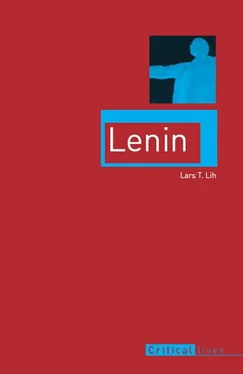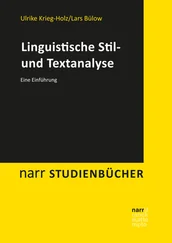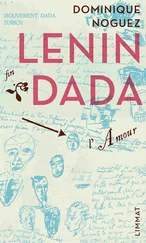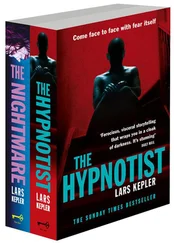3 Arthur Ransome, Russia in 1919 (New York, 1919), p. 99 (in specific reference to trade unions).
4 Morris Hillquit, From Marx to Lenin (New York, 1921), pp. 113–14.
5 Leo Pasvolsky, The Economics of Communism (New York, 1921), p. 295.
6 William English Walling, Sovietism (New York, 1920), p. 52.
7 Muriel A. Payne, Plague, Pestilence and Famine (London, 1923), p. 48.
8 Ibid., pp. 75–6.
9 Ibid., pp. 36, 40.
10 Ibid., p. 138.
11 Ibid., pp. 142–3 (parenthetical comment inserted from earlier passage).
12 Ibid., p. XV; cf. p. 34. Payne’s one mention of Lenin: ‘The people absolutely worship Lenin – odd as this may seem in England. They don’t seem to like Trotsky so much; but even the educated Russians never say a word against Lenin. There must be something in a man so much beloved’ (p. 117).
13 My main source on the course of Lenin’s health is the account of his sister Maria Ulyanova (published in Izvestiia TSK KPSS , 1991, nos 1–6).
14 Lenin, PSS 53:109 (letter of 9 August 1921).
15 Space does not permit a full analysis of a famous outburst in March 1922 in connection with a campaign to force the Orthodox Church to contribute some of its valuables to famine relief. Three summary points can be made: Lenin’s outburst is not as bad as it is made to sound by the usual citations, often quoted without any context whatsoever; Lenin’s more extreme rhetoric did not become as the basis of actual policy; the previous mitigating points still leave us with a repellent call for violence covered by a fig-leaf of legality. For the text of this memorandum, see V. I. Lenin: Neizvestnye dokumenty, 1891–1922 (Moscow, 1999), pp. 516–19. For background on the expulsion of prominent intellectuals in 1922 see Stuart Finkel, On the Ideological Front: The Russian Intelligentsia and the Making of the Soviet Public Sphere (New Haven, CT, 2007).
16 Based on Maria Ulyanova’s later account, as published in Izvestiia TSK KPSS , 1989, no. 12, p. 198; 1991, no. 3, p. 188. There is other documentary evidence that this conversation took place.
17 ‘Political Testament’ was the title given to a recently published collection of letters by Engels ( Izvestiia TSK KPSS , 1991, no. 6, p. 198).
18 Izvestiia TSK KPSS , 1991, no. 6, p. 197.
19 Ransome, Russia in 1919 , pp. 118–19.
20 Ibid., p. 126. Ransome replied: yes, abortive typhoid.
21 Russell, The Theory and Practice of Bolshevism, 2nd edn (London, 1949) (first published 1920), p. 34. Lenin’s scenario for England is set forth in the pamphlet that he had just written for the Second Congress of the Third International, Left-Wing Communism, A Sign of Growing Pains .
22 For one example of such reassurances, see the speech of May 1919 ( Leninskii sbornik [1970], 37:150).
23 Lenin, PSS 38:261–2; CW 29:271; see also PSS 38:316–19; CW 29:320–23.
24 Lenin, PSS 42:310–11; CW 32:113 (6 February 1921).
25 Lenin, PSS 44:293; CW 33:144–5 (23 December 1921).
26 Lenin, PSS 40:245; CW 30:450 (April 1920). Compare this claim to Lenin’s bid for support from the middle peasant, as discussed later.
27 Lenin, PSS 45:401–6; Pathfinder, p. 251.
28 Lenin, PSS 44:79; CW 32:505 (letter to Ganka Miasnikov).
29 Lenin, PSS 38:256–8; CW 29:265–7.
30 Lenin, PSS 39:372–82; CW 30:193–204.
31 Lenin, PSS 42:180 (Eighth Congress of Soviets, December 1920).
32 Lenin, PSS 43:60–61; CW 32:216–17.
33 Lenin, PSS 38:194–5; CW 29:205 (speech at Eighth Party Congress, March 1919).
34 Lenin, PSS 42:195.
35 Pasvolsky, Economics of Communism , p. 265.
36 Lenin, PSS 38:200–201; CW 29:210–11 (Eighth Party Congress, March 1919) (Lenin’s emphasis). See also PSS 38:29; CW 29:44–5 (March 1919).
37 Lenin, PSS 39:372–82; CW 30:193–204 (December 1919).
38 The metaphor of oases of collective production comes from N. Osinski in Pravda , 5 September 1920. For Lenin’s electrification slogans see PSS 42:30; CW 31:419 (21 November 1920) and 42:157–9; CW 31:516 (22 December 1920).
39 Lenin, PSS 39:154; CW 29:555.
40 Lenin, PSS 40:230; CW 30:435 (from a short recorded speech). As Trotsky put it in February 1920, ‘the grain will be returned to the village in several months, in a year or two, in the form of cloth, agricultural equipment, kerosene, and so on’ ( Sochineniia [Moscow, 1925–7], vol. 15, pp. 14–23).
41 Lenin, PSS 39:278; 30:113–14 (October 1919).
42 Lenin, PSS 43:29; CW 32:188–9 (‘possibility of being his own boss’ is a paraphrase of svobodno khoziainichat’ ).
43 Lenin, ‘On Cooperation’, PSS 45: 369–77; Pathfinder, 209–18. During the Gorbachev era, this article was taken out of context and used to advocate a move away from state control of distribution.
44 Instances of this phrase seem to be restricted to PSS 43:371 (notes for a speech to the Tenth Party Congress in 1921), PSS 44:160–1, CW 33: 65–6 (speech of October 1921); PSS 45:6, CW 33:216 (speech of 6 March 1922). Lenin also used similar expressions when discussing his fears that the party was being controlled by the bureaucracy ( PSS 45:94–5; Pathfinder, pp. 50–51). Probably the hard-line connotations of the phrase arose when Stalin claimed that coercive collectivization had successfully solved the problem of kto-kovo .
45 Lenin PSS 45:383–88; Pathfinder, 233 (‘How to Reorganize Rabkrin) (January 1923).
46 For example, PSS 38:62; CW 29:77 (March 1919).
47 Lenin PSS 41:27–8; CW 31:44–5 (summer 1920).
48 Voprosy istorii KPSS , 1990, no. 6, p. 33.
49 From Zinoviev’s speech at the 8th Congress of Soviets, December 1920 ( Vosmoi vserossisskii s”ezd rabochikh, krestianskikh, krasnoarmeiskikh i kazachikh deputatov (Moscow, 1921), pp. 207–12, 224.
50 Lenin, PSS 44:368–9.
51 Lenin, PSS 45:86; Pathfinder, p. 41 (speech in March 1922); cf. PSS 45:308, 390–91; Pathfinder, pp. 125, 238–9.
52 Lenin, PSS 45:95–100; Pathfinder, pp. 50–55. For capitalists worming their way into the bureaucracy and taking on the ‘protective colouring’ of Soviet employees, see PSS 39:155; CW 29:556 (August 1919).
53 Lenin’s notes were published under the title ‘Our Revolution’ ( PSS 45:378–82; Pathfinder, pp. 219–23).
54 Lenin, PSS 38:75; CW 29:95–6 (March 1919).
55 Lenin, ‘How we should reorganize Rabkrin’, PSS 45:383–8; Pathfinder, pp. 227–33.
56 Lenin, PSS 45:308; Pathfinder, pp. 124–5.
57 Lenin, PSS 45:406; Pathfinder, p. 252.
58 Lenin, PSS 45:363–8; Pathfinder, pp. 203–8 (published in Pravda on 4 January 1923).
59 Letter of 29 July 1923 ( Izvestiia TSK KPSS , 1989, no. 4, pp. 186–7).
1 Grigory Zinoviev, History of the Bolshevik Party (London, 1973), p. 60.
2 Theodore Rothstein (a British socialist of Russian origin), originally in The Social Democrat , IX/2, February 1905, as reprinted in the Marxists Internet Archive, www.marxists.org/archive/rothstein/1905/02/russia.htm(accessed 7 May 2010).
Читать дальше












